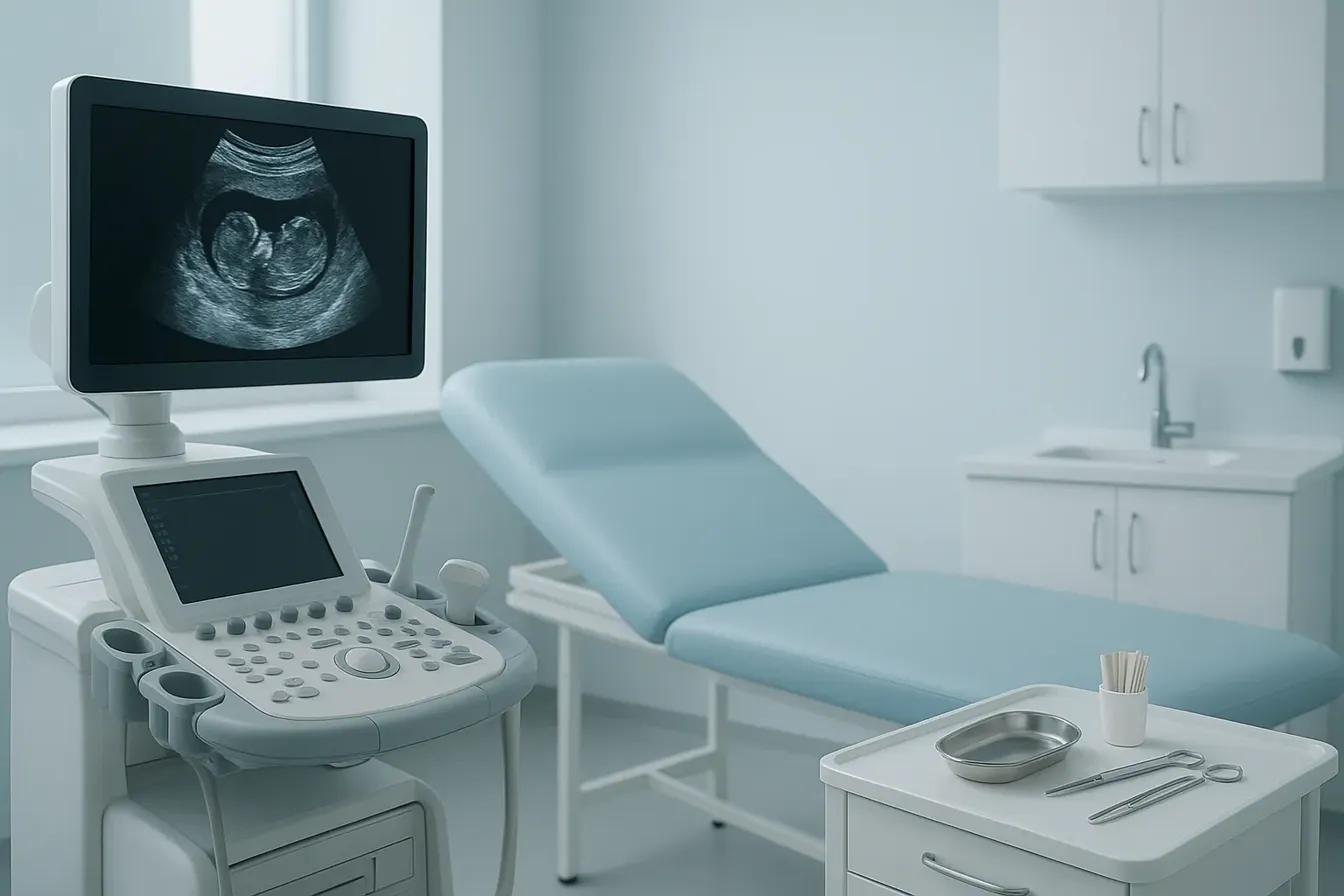Empowering Choices: The Essentials of Birth Control Counseling

Understanding When to Seek Fertility Evaluation
Definition of Infertility
Infertility is generally defined as the inability to conceive despite having regular, unprotected intercourse over a period of time. For most couples, this period is one year. Approximately 15% of couples of reproductive age face challenges with fertility, making evaluation essential to identify causes and pursue suitable treatment.
Age-Related Evaluation Timelines
Women under 35 years of age who have been trying to conceive without success for a full year should consider undergoing a fertility evaluation. For women aged 35 to 39, this timeline shortens to six months due to the natural decline in fertility associated with age. Women 40 years and older are encouraged to seek evaluation promptly upon deciding to conceive.
Signs Indicating the Need for Evaluation
Certain symptoms or conditions signal the need for an earlier fertility assessment, such as:
- Irregular or absent menstrual cycles, which may point to ovulatory issues like polycystic ovary syndrome (PCOS).
- A history of two or more miscarriages, which can indicate underlying reproductive challenges.
- Known medical conditions affecting fertility, including endometriosis, uterine abnormalities, or hormonal imbalances.
- Male partner factors such as abnormal semen analysis results, requiring a joint evaluation.
Timing matters in fertility evaluation as early diagnosis and personalized care can greatly improve the chances for a successful pregnancy. Women and couples experiencing these signs should consult a reproductive specialist to explore testing and treatment options tailored to their situation.
The Fertility Evaluation Process: What to Expect

Initial assessment steps
The fertility evaluation begins with a detailed medical, sexual, and reproductive history review for both partners. This includes assessing menstrual cycle regularity, previous pregnancies or miscarriages, and any known conditions like endometriosis or PCOS. A physical examination often follows, and in many cases, the initial evaluation is conducted by an obstetrician-gynecologist. If needed, referral to a reproductive endocrinologist or fertility specialist occurs for more advanced assessment. For detailed guidance, see the Fertility evaluation guide and Fertility evaluation of infertile women.
Common diagnostic tests for women and men
Women typically undergo ovulation assessment, ovarian reserve evaluation, and reproductive organ imaging. Ovulation can be monitored via blood hormone tests, ultrasounds, or home ovulation kits. Ovarian reserve is assessed by measuring hormones such as Anti-Mullerian Hormone (AMH) and Follicle-Stimulating Hormone (FSH), often on day 2 or 3 of the menstrual cycle. Imaging studies like transvaginal ultrasounds, hysterosalpingograms (HSG), and sonohysterograms help evaluate the uterus, fallopian tubes, and check for fibroids or cysts. For men, semen analysis is the primary diagnostic test, examining sperm count, motility, morphology, and volume. Additional tests like sperm DNA fragmentation or urologic exams may follow if abnormalities are detected. More details on these tests can be found in the Common fertility tests and Male fertility assessment.
Blood tests, ultrasounds, and semen analysis
Blood tests are critical to assess hormonal balance and ovulation status, with measurements of FSH, LH, AMH, estradiol, progesterone, thyroid hormones, and prolactin. Ultrasound imaging provides a visual evaluation of reproductive structures and can identify abnormalities affecting fertility. Semen analysis is essential in evaluating male fertility, often requiring abstinence from ejaculation for 2 to 5 days before the test for accuracy. Combined, these tests offer a comprehensive understanding of factors influencing conception. For comprehensive information, refer to Blood tests for hormone levels, Ultrasound imaging for fertility, and Semen analysis details.
Preparation and duration of tests
Patients should prepare for fertility tests by maintaining a balanced diet, abstaining from smoking and limiting alcohol and caffeine intake. Blood draws may require fasting, and ultrasounds typically need a comfortably full bladder for better imaging. Semen samples are collected at the clinic or home within set guidelines ensuring timely delivery. Testing durations vary from minutes for blood samples to about 20–30 minutes for semen analysis. Complete evaluations may require several visits over a few days or menstrual cycles, allowing providers to interpret results accurately and discuss personalized treatment plans. For preparation and timing details, see Preparing for fertility testing and Duration of fertility tests.
What types of obstetrics and gynecology services does a woman-led healthcare provider typically offer?
A woman-led healthcare provider specializing in obstetrics and gynecology offers comprehensive care including routine exams, cancer screenings, menstrual and hormonal disorder management, prenatal care, childbirth preparation, postpartum support, fertility counseling, reproductive endocrinology services, and menopause management. These providers prioritize personalized, compassionate care to support women through all life stages. For services in Queens, see Women's Health Services in Queens and for fertility care options, Northwell Health Fertility consultations.
Common Causes of Infertility and Diagnostic Focus Areas

What are common causes of infertility?
Infertility can arise from several underlying causes involving both partners. Key factors include ovulatory dysfunctions, structural abnormalities within the reproductive system, male fertility issues, and the natural decline in fertility associated with age (Infertility definition and timelines, Impact of age on fertility).
How does ovulatory dysfunction affect fertility, including PCOS?
Ovulatory dysfunction accounts for up to 40% of female infertility cases. Conditions like polycystic ovary syndrome (PCOS) disrupt normal ovulation due to hormonal imbalances, often marked by irregular or absent menstrual cycles (PCOS and conception challenges, ovulatory function assessment). These disruptions prevent the release of eggs, making conception difficult. Diagnosis often involves hormone blood tests and monitoring of ovulation via ultrasound or ovulation home test kits.
What structural abnormalities impact fertility?
Structural issues in the uterus or fallopian tubes can block the path of sperm or impede implantation. Common abnormalities include fibroids, uterine polyps, adhesions, and blocked or damaged fallopian tubes. Diagnostic testing such as hysterosalpingogram (HSG) or sonohysterogram evaluates tubal patency and uterine shape. Detecting and addressing these conditions improves chances of conception.
How do male fertility factors contribute to infertility?
Male factors contribute to about half of infertility cases. Semen analysis assesses sperm count, motility, morphology, and volume, which indicate sperm health. Abnormal results may stem from genetic issues, blockages, or other health conditions requiring further evaluation (Male fertility assessment, Additional male fertility tests). Treatments like intrauterine insemination (IUI) or assisted reproductive technologies (ART) such as in vitro fertilization (IVF) can assist couples facing male infertility challenges.
What role do age and hormonal imbalances play?
Age has a significant impact on female fertility; after age 35, both the quantity and quality of eggs decline, reducing conception rates (Impact of age on fertility, Fertility testing for women aged 36-39). Hormonal imbalances involving follicle-stimulating hormone (FSH), luteinizing hormone (LH), prolactin, or thyroid hormones can also impair fertility (blood hormone level tests, Prolactin measurement in infertility). Tests measuring these hormones help guide diagnosis and treatment plans.
These diagnostic focus areas guide personalized fertility evaluations, ensuring appropriate and effective interventions for women and men facing challenges conceiving.
Personalized and Advanced Care in Fertility Evaluations

How does a woman-led healthcare provider enhance personalized care in women's health?
A woman-led healthcare provider brings a patient-centered approach that uniquely tailors care to each woman's individual biological, social, and environmental context. Their comprehensive focus addresses not only the medical aspects but also the emotional and educational needs during fertility evaluations. By adopting the 4Ps model—Personalized, Predictive, Preventive, Participatory—they actively involve women in decisions about their health, empowering them through education and self-management strategies. Such providers emphasize inclusivity and innovation, ensuring diverse patient representation and reducing disparities in diagnosis and treatment. This supportive environment improves diagnostic accuracy and enhances patient satisfaction by acknowledging each woman's specific health journey.
What advanced women's health care technologies and treatments are commonly utilized by specialized healthcare providers?
Specialized providers employ a range of advanced diagnostic and treatment technologies to improve outcomes in fertility care. Minimally invasive procedures like laparoscopy and hysteroscopy procedures allow for direct visualization and treatment of reproductive conditions such as endometriosis, adhesions, and uterine abnormalities with minimal recovery time. Imaging modalities including transvaginal ultrasound, hysterosalpingography, and 3D imaging provide detailed evaluation of ovaries, fallopian tubes, and uterine structure to guide treatment plans.
Genetic testing plays a critical role by identifying inherited or chromosomal factors affecting fertility, especially in cases of recurrent pregnancy loss. Hormone profiling—including tests for FSH, LH, AMH, prolactin, and thyroid function—assesses ovarian reserve, ovulatory function, and hormonal imbalances that may impede conception.
Together, these advanced tools enable personalized treatment plans ranging from ovulation induction and surgical intervention to assisted reproductive technologies like in vitro fertilization (IVF). This integrated approach offered by woman-led teams ensures care is precise, compassionate, and responsive to each patient’s unique fertility needs.
When to Consult a Specialist and How Age Impacts Fertility Outcomes

Timing Recommendations Based on Age Groups
Women under 35 are generally advised to seek a fertility evaluation after trying to conceive for one year without success. For women aged 35 to 39, evaluation is recommended after six months of unsuccessful attempts. Women aged 40 and above should seek consultation as soon as they decide to become pregnant or if conception does not occur quickly, reflecting the more rapid decline in fertility with advancing age. See also fertility testing for women aged 36-39 and fertility advice for women 40 or older.
Indicators Such as Irregular Cycles and Recurrent Miscarriage
Irregular or absent menstrual cycles may signal ovulatory dysfunctions such as polycystic ovary syndrome (PCOS), which can affect the ability to conceive. Women experiencing two or more miscarriages should also consider consulting a fertility specialist to assess for possible underlying issues such as hormonal imbalances or genetic factors. Relevant information includes evaluation for irregular menstrual cycles and recurrent pregnancy loss evaluation.
Importance of Timely Intervention for Women Over 35 and 40
Age is a crucial factor in fertility outcomes. Fertility begins to decline significantly around age 35, with chances of natural conception dropping and risks of diminished ovarian reserve increasing. Women over 40 face even greater fertility challenges and should not delay evaluation or treatment to maximize their chances of a successful pregnancy. More details on impact of age on fertility and when to seek infertility treatment provide useful guidance.
Referral from Gynecologist to Reproductive Endocrinologist
Typically, initial infertility assessment is conducted by an obstetrician-gynecologist. Women with concerning factors—such as age over 35 with unsuccessful conception attempts, irregular cycles, or recurrent pregnancy loss—are often referred to reproductive endocrinologists, specialists who provide advanced fertility diagnostics and personalized treatment plans. See also consult gynecologist or fertility specialist.
Overall, recognizing the timing for evaluation and intervention based on age and symptoms is paramount to improving fertility outcomes and ensuring appropriate, timely care for women in Queens, NY, and beyond.
Developing a Fertility Treatment Plan Based on Evaluation Results

Interpreting Diagnostic Outcomes
Once fertility evaluations are completed, healthcare providers review the test results—including hormone levels, ultrasound findings, semen analysis, and any imaging studies—to identify the underlying causes of infertility. Common issues may include ovulatory dysfunction indicated by abnormal hormone levels, structural abnormalities like blocked fallopian tubes discovered via hysterosalpingogram (HSG), or male factors such as low sperm count or poor motility from semen analysis. Understanding these results guides the selection of appropriate treatments tailored to the individual or couple’s unique situation.
Treatment Options Including Lifestyle Modification, Medication, and Surgery
Initial treatment may involve lifestyle changes such as quitting smoking, managing weight, reducing alcohol and caffeine, and stress reduction, which can all improve fertility potential. Medications like Clomiphene citrate or letrozole may be prescribed to induce ovulation for women with ovulatory disorders such as polycystic ovary syndrome (PCOS). Surgical interventions might be necessary when physical problems are detected; for example, laparoscopic surgery can treat endometriosis or remove fibroids, and hysteroscopy procedures can address uterine polyps or scar tissue.
Assisted Reproductive Technologies Such as IUI and IVF
When simpler treatments are unsuccessful or when factors such as tubal blockage or severe male infertility are diagnosed, assisted reproductive technologies (ART) may be recommended. Intrauterine insemination (IUI) involves placing prepared sperm directly into the uterus around ovulation to improve fertilization chances. In vitro fertilization (IVF) is a more advanced treatment where eggs are retrieved, fertilized with sperm in a laboratory, and resulting embryos implanted back into the uterus. IVF is particularly useful in cases of tubal disease, severe male factor infertility, or unexplained infertility.
Ongoing Management and Follow-up Care
Managing fertility is an ongoing process. Patients require regular follow-up visits to monitor treatment effectiveness, adjust therapeutic approaches, and address any complications or emotional concerns. Fertility specialists coordinate care with gynecologists and other healthcare professionals to provide comprehensive support. In some cases, fertility preservation might be discussed for women with diminished ovarian reserve or who require delayed childbearing. Continuous communication and personalized care plans are essential to optimize reproductive outcomes and patient well-being.
Empowering Women Through Knowledge and Comprehensive Fertility Care
Importance of Early Testing and Personalized Healthcare
Early fertility evaluation is crucial, especially for women over 35, to maximize conception chances. Personalized healthcare plans, developed through thorough assessments like hormone tests and imaging, ensure that treatment targets individual needs effectively.
Role of Woman-Led Providers in Supporting Fertility Journeys
Women-led fertility specialists understand the unique challenges women face during fertility care. Their compassionate approach fosters a supportive environment, enhancing patient confidence and guiding patients through diagnostic and treatment phases with empathy.
Encouragement for Proactive Engagement and Seeking Help
Women are encouraged to seek timely evaluations if conception is delayed or menstrual irregularities appear. Engaging with healthcare providers early accelerates diagnosis and treatment, improving outcomes and empowering women to make informed reproductive choices.





.png)